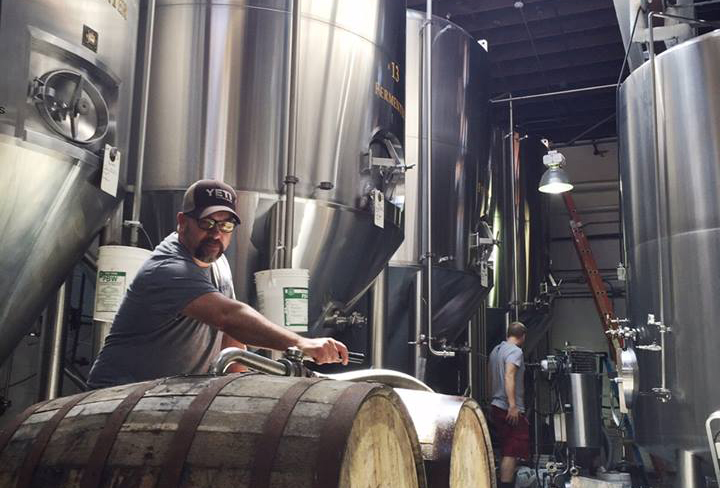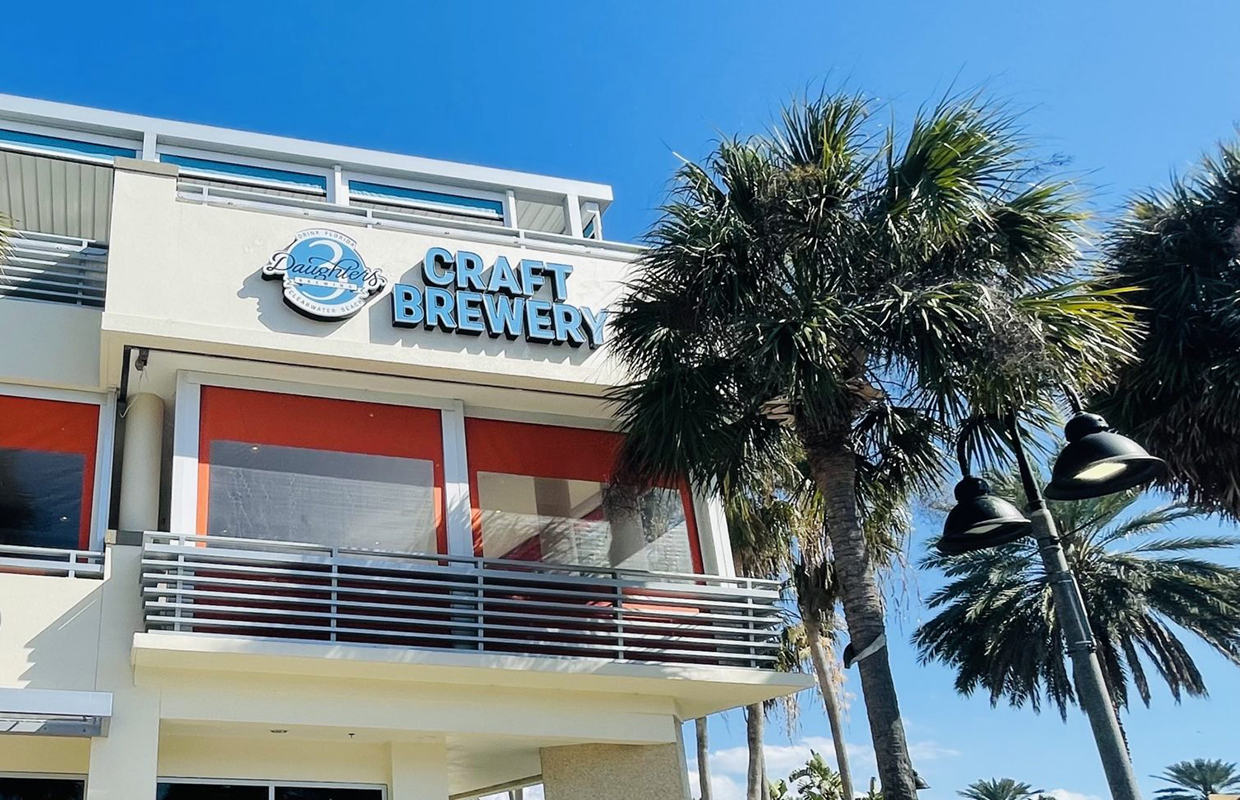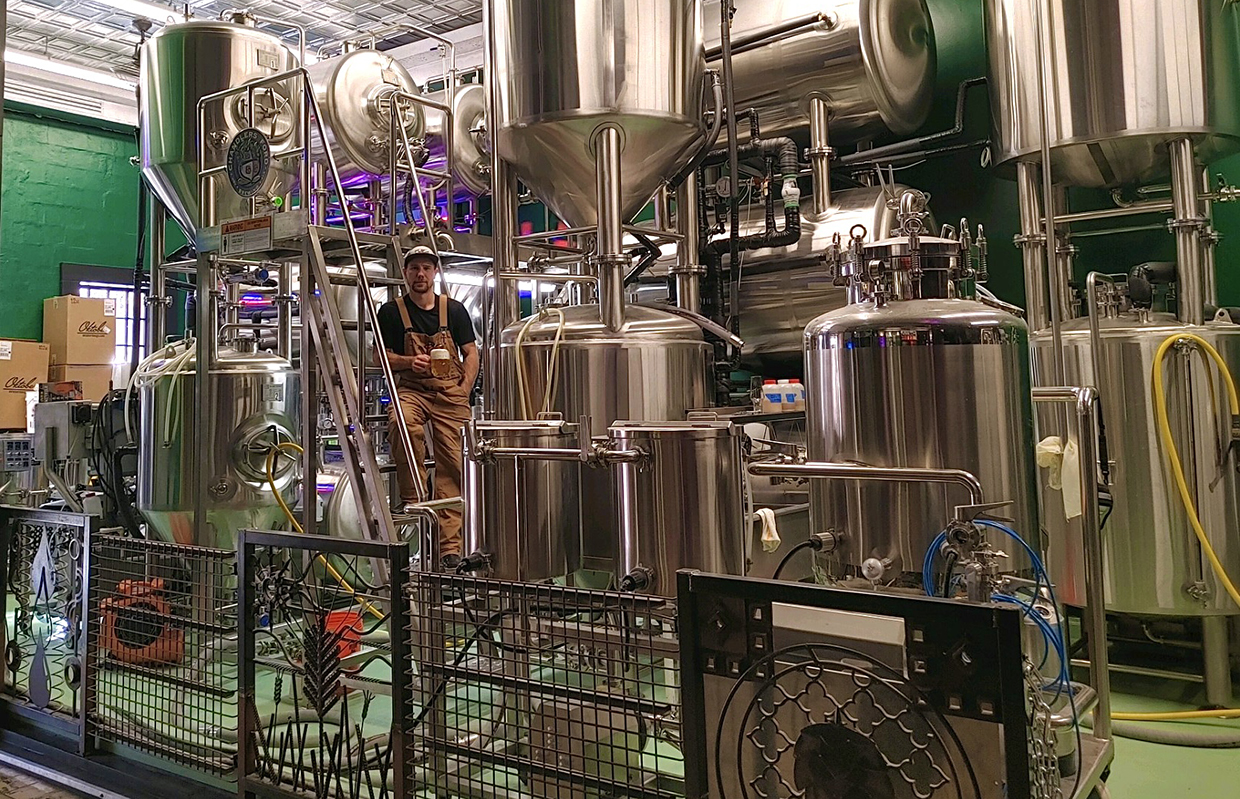
As a person of color, Samuel Chawinga of Boomtown has looked to make sure that both the management and staff of the Los Angeles-based brewery have a wide diversity of people.
“It also reflects our clients, which promotes a feeling of inclusion in our base,” said the brewery’s Director of Operations.
Assessing a candidate for hire is one of the hardest aspects of running a small business and shouldn’t be taken lightly when it comes to a variety of characteristics that can help build up that team. Looking outside of oneself and finding new hires outside of what would be considered the normal pool of candidates takes effort, but it can pay off. Working to minimize bias in the interview process can ensure a fair assessment of a candidate. That can mean rethinking what a brewery needs to look for in a candidate.
In Vermont, The Alchemist has very little turnover, and the popular company also is located in a predominantly white state.
With that said, co-owner Jen Kimmich said when they think about diversity, they are certainly talking about race and gender, but also she said they are thinking about physical disability, neurodiversity, and education level among other things.
“A workplace culture that is focused on being inclusive works for everyone,” Kimmich said.
“When we have a job opportunity and job posing to share, we post them within various Black Professionals networks. We also work with local organizations to hire and retain employees with both intellectual and physical disabilities,” she said. “We have been recognized by the state for our employment practices, but they aren’t perfect; we are always trying to improve them through intentional outreach —making sure a job posting makes it to a wide variety of people outside your personal network.
“More importantly, we focus on internal education and ways to support our team so that every employee feels welcomed and truly included once they are here. It’s not about checking a box.”
Every hire takes up time and money, Chawinga said, so missing the mark is not an option.
“We let everyone who is applying for a job that to be awarded the position there will be three interviews,” he explained. “I feel like as much face time with someone as possible gives everyone a better chance to get past any bias that may affect their judgment.
“I don’t know if there is a training to eliminate unconscious bias more than being aware that everyone is affected by their own. Being mindful in our assessments will only help.”
Each position for Short’s Brewing has its own set of questions, and each applicant is asked those questions, explained HR Director Elizabeth Dewey.
READ MORE: Why Sanitas and Second Chance Are Glad They Prioritized DEI
“Sometimes follow-up questions could come from how a question was answered but everyone is given the same opportunity to answer all the same questions,” she said. “The questions are based on candidates’ experience, except for a few fun/get-to-know-you type questions.
“Some management positions are also asked to do other things as part of the process.”
New Realm utilizes a competency-based, open-ended interview question process that focuses on what, where, why, and how to allow managers to be able to have open and honest conversations with candidates based on the answers that are given.
“They can ask follow-up questions based on a candidate’s responses which allows both the candidate and the interviewer to learn more about each individual,” explained CEO Carey Falcone.
All of New Realms’ new hires are assigned the following courses which are also required to be completed by every employee every year:
- Unconscious Bias
- Cultural Competence in the Workplace
- LGBTQ+ Inclusion
- Diversity, Equity, & Inclusion in the Workplace
- Microaggressions in the Workplace
Lawson’s Finest’s HR team focuses on posting roles on a wide variety of job boards, to ensure that openings are on the radar of a diverse group of potential applicants.
“We’ve engaged with job boards such as Pink Boots, BeerKulture, and Women of the Bevolution, but it’s important to be sure that the job postings themselves use inclusive language as well,” added Kelly Putnam, Director of People and Purpose. “For that reason, we run our job descriptions through a “gender decoder” to ensure the postings aren’t skewing towards a particular candidate by using language that’s coded more prevalently towards one gender over another.
“Not only do we want to draw in a wide range of candidates, but we also want to be mindful of the language we’re using – and the underlying message it may contain – from the beginning of the recruiting process.”
Creating that larger pool can help diverse talent along with becoming more welcoming to a brewery’s clientele as well.
“As a brewery, we are a meeting place for the community,” Chawinga said. “We work with a large pool of community outreach groups in underrepresented people to create a dialogue and exposure.
“Most people get jobs through a referral from someone who knows someone and vouches for them. These events create relationships which can then lead to opportunities to create a more diverse hiring pool.”
It’s also essential to focus on the job functions and the true minimum requirements for a role, Putnam said.
“Does a candidate lack a secondary education but have four years of on-the-job experience that could provide them with a comparable skill set? If so, it’s time to remove ‘Bachelor’s Degree’ from the requirements and expectations on a job description,” Putnam said. “Seemingly small details that have been normalized for decades can eliminate a candidate who may be perfectly capable of a job, but wasn’t afforded the same opportunities in their life and career thus far.”
When interviewing and hiring, avoid looking for a culture “fit,” Putnam said.
“Rather than a ‘fit,’ which could limit a company’s ability to evolve and continue to welcome folks with new thoughts and identities, look for a culture “add” who will enhance the great environment a brewery has created while also keeping a growth mindset and willingness to listen and grow,” Putnam said.





Be the first to comment